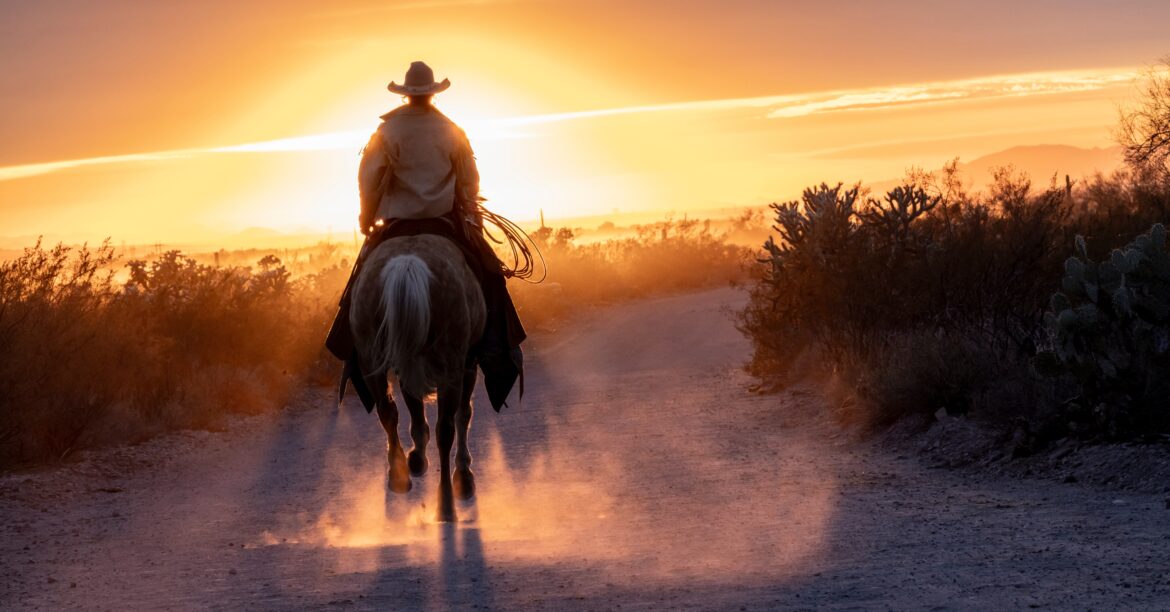In the past 11 months, Golan Heights ranchers have had to tend their cattle while dodging rockets and drones and extinguishing non-stop fires.
Ten years ago, ISRAEL21c visited a ranch in Kibbutz Merom Golan in northern Israel, where journalists met real-life Israeli cowboys.
The ranch is one of around 50 located in the Golan Heights, which sits right across the border from Syria, and fairly close to the border with Lebanon.
The 2014 article described the reality of the day-to-day life of herding cattle as slow and serene, and in some aspects even lonesome.
Fast forward to 2024, and the reality of Golan cowboys could not be any more different.
“We are doing what we’ve always done, but this time under the threat of rocket fire,” Shay Zerbib, who owns a private ranch in the area and also works at Merom Golan, tells ISRAEL21c.
“Someone has to take care of the animals; they need to get fed no matter what,” he adds.
The ranch in Merom Golan, one of the largest in the area, boasts around 1,500 head of cattle.
Containing the flames
Since the start of the war in Gaza nearly 11 months ago, the area has been under constant threat of rockets and suicide drones launched by the Lebanon-based terror group Hezbollah.
These attacks often spark massive fires that scorch thousands of acres of agricultural land in the Golan Heights and other northern areas.
“There are some ranches that have resorted to purchasing hay to feed the cattle,” Zerbib notes.
The 51-year-old rancher explains that farmers in the area are pretty much the primary force that battles the wildfires. The goal is to extinguish the flames immediately, so they cannot afford to stay behind and passively wait for help, he says.
“It changed the way in which we operate. We always have to have tools for extinguishing fire at the ready. Sometimes you get called to put out a fire at 2am, sometimes five times a day,” he adds.
“Sometimes you go out in the field to put out a fire, and another rocket barrage starts in the middle of it. You need to always stay vigilant. It’s not a pleasant feeling.”
‘Rocket alert sirens go off every day’
Rocket and drone attacks in the Golan Heights are not as intense as they are in communities located right on the border with Lebanon, such as Kiryat Shmona or Metula, but there are periods of “escalation.”
“Whenever there’s [an Israeli] operation that’s deeper [inside Lebanon], they retaliate by firing at us; it’s an equation of sorts,” Zerbib explains.
On average, rocket alert sirens go off every single day. “It’s not always rockets; sometimes it’s drone infiltrations from Lebanon and even from Syria,” he adds.
“There were also instances of projectiles falling 50 meters [164 feet] from us; luckily no one was seriously hurt,” he notes.
He explains that erecting bomb shelters in the fields is not realistic. “Merom Golan is 34,000 dunams [8,400 acres] of land. You can’t put up protective spaces every 100 meters.”
The animals
So far, Zerbib has been lucky not to lose any of the animals he cares for, neither at Merom Golan nor at his private ranch near Had Nes, where he has 200 head of cattle.
However, “a neighboring rancher lost 10 cows that died because of smoke inhalation” from a fire set off by a Hezbollah attack.
Zerbib adds he constantly hears reports from other ranchers about cows that were killed by shrapnel, or had to be put down after sustaining severe injuries from rocket attacks.
When it comes to the mental health of the animals, Zerbib says that even the cows in the area are quite resilient.
“Our cows grow up outside on the fields, not in dairy farms; they are used to military exercises in the area so they are less affected mentally.”
Nevertheless, “the real damage will be felt only a year after the event. We don’t know how they’ll breed, how they’ll give birth and to how many calves; this is the real problem.”
Cowboys don’t run away
Zerbib says that none of the five cowboys who take care of the cattle in Merom Golan left the area since the start of the war.
“Farmers don’t flee, and especially not cowboys,” he says.
Even Zerbib’s family declined to be relocated to other areas of the country or even abroad. They ultimately decided to stay together.
“I’ve been living in the Golan Heights since I was three years old; at 13, I began working with a cow herd,” he says.
After nearly 40 years as a cowboy, Zerbib says that recently, “I’ve been wondering if what we’re doing here is appreciated as much as it should be.”
He says the cowboys have not made contingency plans in case an all-out war breaks out with Hezbollah.
“We just live in uncertainty like everyone else; it’s part of Zionism,” Zerbib laughs.
Originally Posted at israel21c.org

